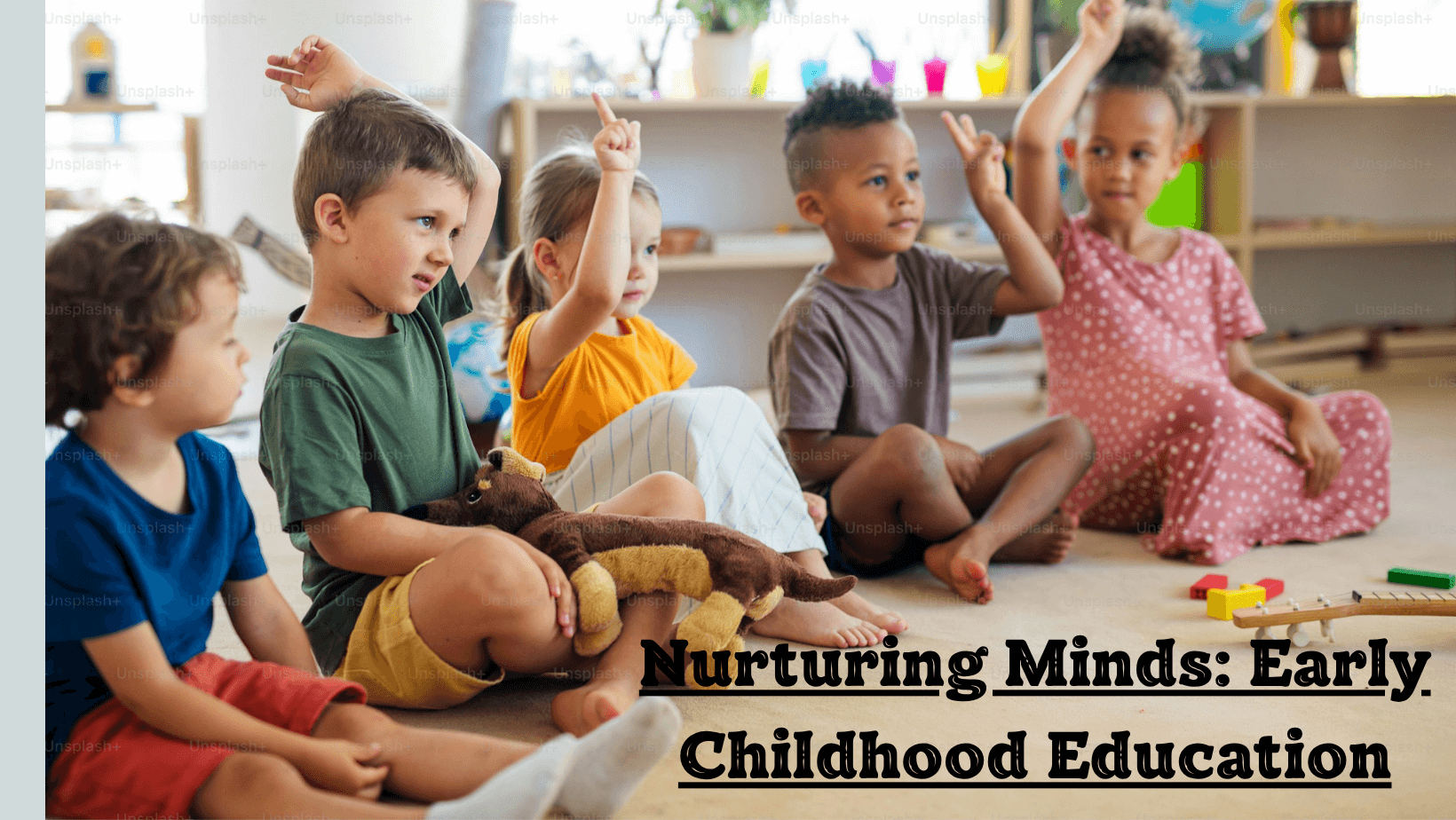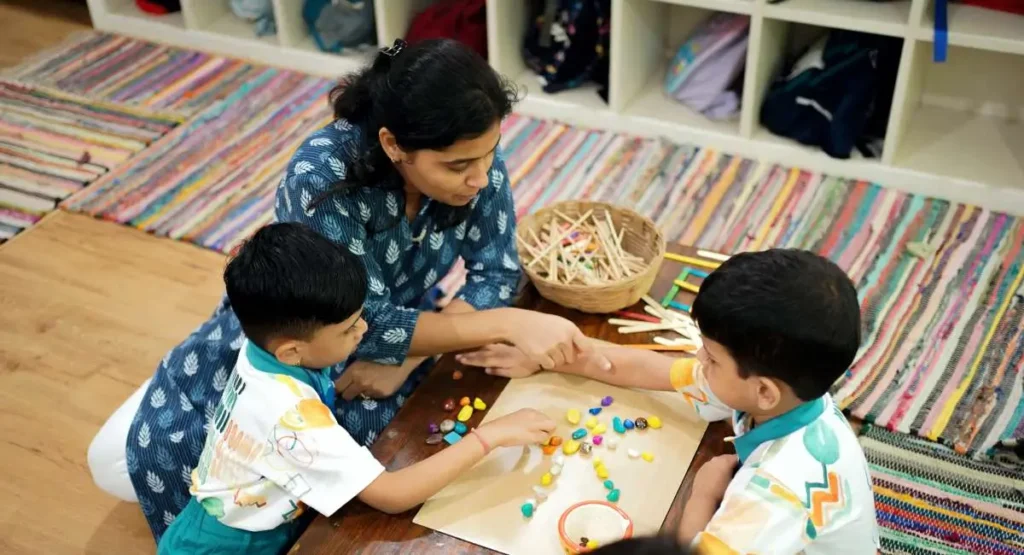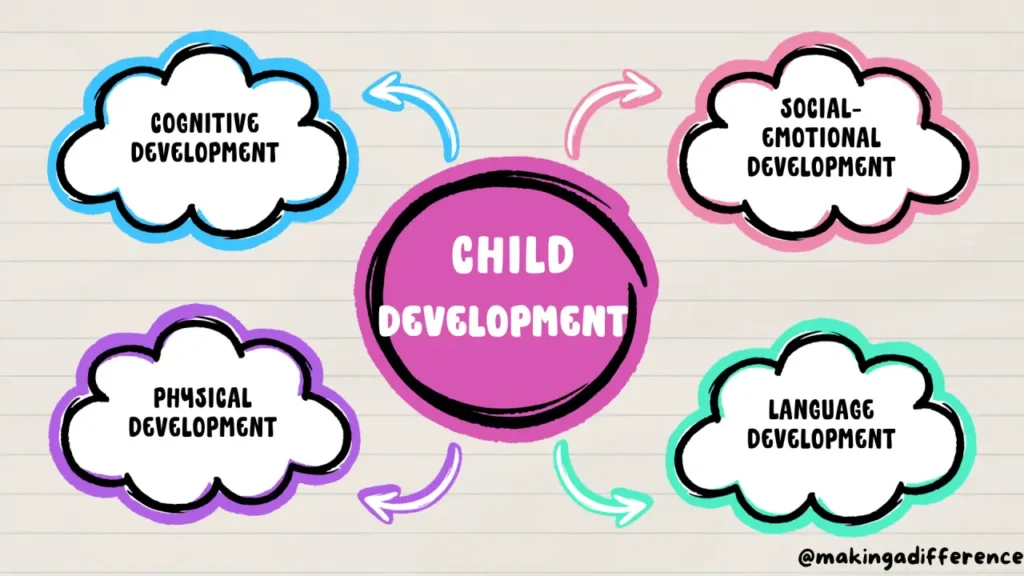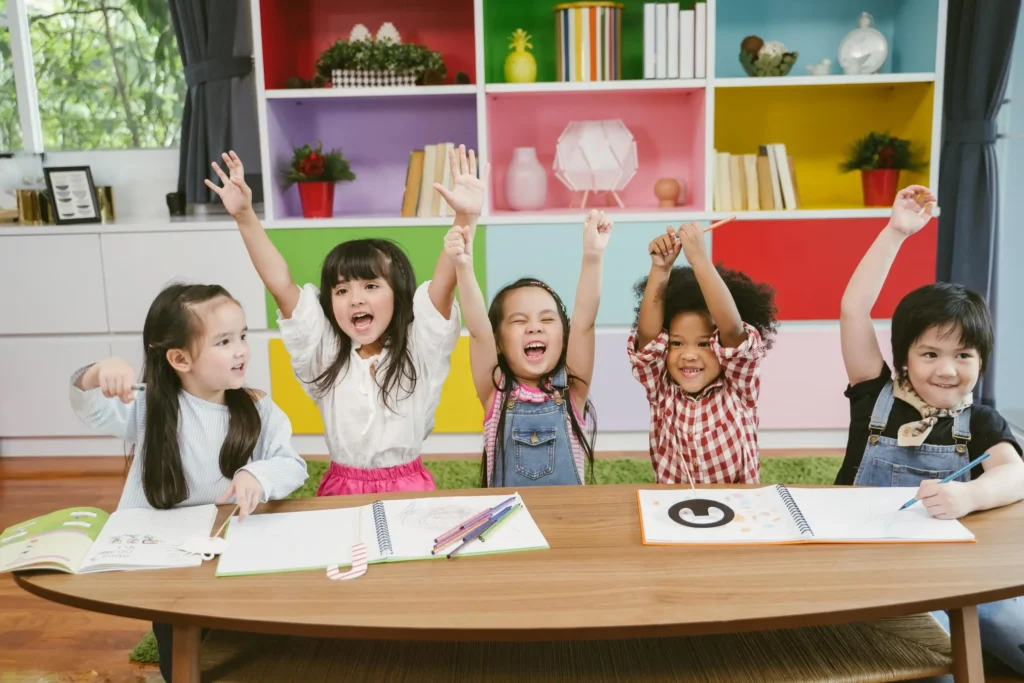
Did you know?
The first few years of life are a miracle. A child’s brain grows rapidly. It creates billions of connections. In fact, by the age of five, approximately 90% of a child’s brain has developed, and more connections form at this time than at any other time. At this time, a child’s brain is forming more than 1 million new neural connections every second. This is a crucial time. It establishes future learning. Also, it influences a child’s health. It even impacts their happiness. Early childhood education (ECE) supports this development. It builds strong foundations, and we will look at its considerable effects.
The Power of Play: Learning Made Fun
ECE often has a large emphasis on play. This differs from the conception of play as free time. Young children learn best through play. So,they explore their world through play. They play with puzzles; they are developing fine motor skills. Also, they learn social order through play; they learn social rules, such as sharing toys and taking turns. This is extremely important learning! Research shows that quality play-based learning develops creativity and critical thinking more than memorization.
ECE programs provide safe environments. Children learn routines. They interact with peers. They meet new adults. These contacts build confidence. They allow children to associate with security. In addition, structured play (the playing actively supports learning). Teachers specifically plan for activities that support children to develop new skills. Play supports regulators for all aspects of growth.
Read more: Racing Thoughts: Quiet Your Mind Now

Key Messages
- In the early years of childhood education, children will lay many of the structures for future learning, ultimately affecting their development.
- Preschoolers will go through significant early childhood cognitive development work; for example, logic, problem solving, and cause-and-effect work.
- Preschoolers will also be working on early childhood social and emotional development, which will include learning how to regulate their emotional responses, understanding people, developing empathy, and learning how to relate to peers and adults.
- Also, preschoolers are demonstrating early childhood language and communication development by learning words, discovering grammar, and sharing their opinions and emotions.
- Preschoolers are experiencing early childhood physical development by making gross and fine motor milestones, and developing coordination and balance.
The Brain’s Blueprint: A Psychosocial Perspective
In addition, early experiences and interactions shape attachment systems. Trust builds through secure attachments, and security is built from trusting interactions. Early childhood education provides multiple interactions with caring, adult figures. This is where we build trusting relationships, and children experience the security to trust the security of adults. Children positively learn about adults, and have the emotional security to explore and feel confident trying new things, along with reduced anxiety to develop all positive learning. Positive parenting experiences help ensure children are learning in an emotional comfort zone.
A child’s brain is like wet cement. Everything leaves a stain on the brain. The unique experiences that happen early in childhood will shape it forever. The nature of your experiences will strengthen positive pathways, or leave forgettable and weak spots. Early childhood education offers experiences that are rich and offer different opportunities for children to process information in different parts of their brain, and allow experiences and connections to develop. These experiences increase cognitive ability and provide children with strong constructs for learning by allowing brain pathways to process information more efficiently and easily retain information.
Working in Partnership with Families: A Shared Journey
- Parents are a child’s first and foremost teacher, and there is no substitute for what they do.
- When parents involve in ECE programs, it is typically more successful.
- Parents and ECE programs have a partnership in working together to communicate what they are collectively working towards with the child.
- They provide materials to support learning and teach skills that can be helpful in parenting.
- The “team” effort provides a better support system for the positive outcomes of the child, with the potential for big benefits.
- The parents also feel more capable and connected to their child’s learning experiences.

Success in Action: Recent Case Study
Take the Punjab ECE Program in Pakistan as an example. The Punjab government, a large province in Pakistan, began an initiative to revamp and expand early childhood education in the public school system. More specifically, the program turned traditional “katchi” (pre-primary) classes into proper ECE classrooms. They trained teachers on teaching through play. They provided special ECE kits, which included teaching materials. Also, they re-designed classrooms, which featured learning corners.
A clear example was found in a village in the District of Toba Tek Singh. There were many children in that village, before the introduction of the program, entering primary schools, unable to do basic counting or even recognize letters.
A young boy named Ali was happy to be included in the new ECE class. Not only did he learn how to recognize several letters and numbers before he started grade one, but he developed many strong social techniques as well, such as sharing toys and taking his turn with the other children.
His parents were not convinced before; they were skeptical of “play-based” learning, but when they saw him attending school with enthusiasm and he started to communicate in new ways at home, they were both amazed. So much so that when he entered primary school, he was excited to go and ready to learn almost anything. This example was part of a much larger pilot project designed to see the realities of how focused ECE implementation can prepare children, and not only increase enrollments, but also improve learning. This also proved that through focused, structural early learning, there can be a tangible improvement to the curriculum in schools.
Overcoming Barriers: Access and Quality
Early childhood education sure has its benefits, but it isn’t without challenges. First, access. A large number of families cannot afford ECE. Secondly, the quality of ECE varies quite a bit. Not all programs have great teachers, and not all programs use good materials or have other resources to support learning. Together, these two issues create a fundamental inequity in our education system. In Pakistan, fewer than 40% of children 3-5 years old are enrolled in any form of early childhood education. Children from homes with the least wealth are especially, if not totally, left out. When they start school, they start behind. In many cases, the gap continues to grow.
Read more: Little Ones, Big Screens: What’s the Impact?

Preschoolers and Their Physical Development
When referring to physical development in preschoolers, we are discussing the development of gross motor skills (using large muscles) and fine motor skills (using small muscles). Physical advancement is one developmental milestone that children will advance rapidly during their preschool years. Children will develop strength, coordination, balance, and control as they become more proficient in the use of their physical being. A preschooler will partake in various physical activities, including running, jumping, climbing, dancing, drawing, using scissors, and using small objects. As children make use of the activities they love, they are enhancing their motor movement skills, hand-eye coordination, spatial awareness, body control, and the determination to see how physically their bodies can be.
Early childhood educators can assist preschoolers in their physical development by introducing opportunities to engage in movement-based play, time spent outdoors, and performing fine motor play by utilizing scissors and objects to develop hand strength and dexterity. By creating programs with a focus on developing motor skills, educators can invoke physical development, which allows preschoolers to develop a physical development foundation that becomes healthy habits, physical fitness, and children’s overall well-being.



Leave a Reply